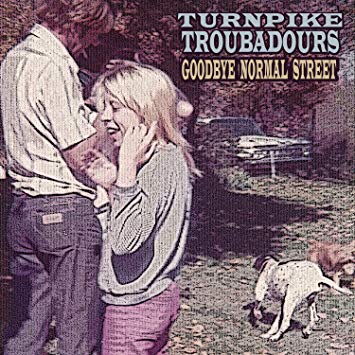Rating: 8/10
*All proceeds from the sale of Songs for the Saints will go to hurricane relief for the people of St. John*
Yes, Kenny Chesney has made a career largely out of setting the island life of his home on St. John to music. There are two sides to this coin, though: the side with carefree anthems like “No Shoes, NO Shirt, NO Problems,” and the side with the beautiful, introspective songs like “Old Blue Chair.” There will always be Chesney detractors and people who just don’t like beach songs, but for this listener, he hasn’t been a problem in the mainstream by any means until recently. with his last couple albums, Chesney has just not really been himself, much of the material just being bland and lacking substance. I wrote a piece in 2017 about mainstream artists I wished would just get back to being themselves as Brad Paisley had done on Love and War. Dierks Bentley did this on The Mountain, while Keith Urban released one of the worst albums I’ve ever heard with Graffiti U and continued to destroy his credibility and legacy. Kenny chesney joins Paisley and Bentley, making a substantive, smart, and introspective album and returning to what made him great in the first place. If you weren’t a fan of Kenny or beach songs before, this record isn’t going to change your mind, but if you’ve been a fan previously and have become disappointed by his recent output, this is a really nice return to form. It’s the album you want from Kenny Chesney and certainly one of the best mainstream releases of 2018 so far.
That introspective side to his style dominates this record. Chesney was shaken after Hurricane Irma devastated St. John in 2017, flying in medical supplies and aiding in the relief effort while he worked on this album. His kinship with the place and people inspired this project; the “saints” are the people of St. John, resilient and faithful to rebuild after the devastation. This record is a story of hope and perseverance, and Chesney’s love for these people and this island is on full display here. You can tell by listening that he is deeply affected, and the resultant songs are wistful and thoughtful rather than fluffy beach fare. As mentioned above, all proceeds from Songs for the Saints will go toward disaster relief for the people of St. John.
It takes a bit for this album to hit its stride. There’s nothing inherently bad on this record, but the only really great moment of the first five tracks is “Pirate song,” a rambling song like so many others, yet focused on sailing the seas rather than life on the road drifting from town to town. “Get along” is admittedly much better here than it was as a single, and I’ll gladly take back my words in context of the album. The whole record has this carefree, relaxed vibe, and the introspection of “Get Along,” though still lightweight compared to some of the rest of these songs, does fit in here rather well. This first half is already an improvement for Chesney, but it’s definitely the weaker half of the project.
It’s at track 6, with the cover of Lord Huron’s “Ends of the Earth,” where the album really hits its sweet spot, going from something decent and fun to something really wonderful. This song captures that rambling, drifting sentiment first introduced in “Pirate song,” and the production really adds something special to it. The song slowly builds throughout, from relaxed and content to determined and intense; that moment when the drums come in at the first chorus is one of my favorite musical moments of 2018. This was an excellent selection for Kenny Chesney to cover.
Kenny’s penchant for selecting great songs continues with “Gulf Moon,” a song written and previously recorded by Texas songwriter John Baumann, whose latest record Proving Grounds was one of the best of 2017, coming in at #10 on my year-end album list. “Gulf Moon” has all the earmarks of a John Baumann tune, rife with description and detail, from the bartender who “works the jar with a discount flirt, a faded Houston Oilers shirt” to describing the night sky as “the black expanse where the stars flicker and planets dance.” If you’re stumbling onto this song as a Chesney fan, please go check out John Baumann. The same is true for Travis Meadows, who co-wrote the album closer, “Better Boat” with Liz Rose. Meadows’ version came on the 2017 record First Cigarette, which reached #13 on the year-end list here. ON Meadows’ album, this song of overcoming adversity and learning to ride the waves in the storms of life reflected the themes of nostalgia and determination permeating that record; on Chesney’s album, with the references to boats and waves and the gentle harmonies of Mindy Smith, (Mindy Smith, by the way, not some mid-level pop star), it becomes a standout and a fitting conclusion to this statement. And you can’t argue with the selection of Jimmy Buffett’s wistful “Trying to reason with Hurricane season” and the decision to feature Buffett on this version.
Even among the lighter songs, there’s substance and depth. “Island Rain” uses the metaphor of that elusive phenomenon, here and gone in five minutes’ time, to illustrate the passing of life’s troubles, all your worry being washed away by the cleansing rain. “Every Heart” compares all of us to islands, shipwrecked and searching out in the wind for life’s answers. There’s a thread of hope and resiliency running through this whole thing that is so uplifting and encouraging.
I don’t think this album is going to create new Kenny Chesney apologists, except maybe those John Baumann fans checking out this recording of “Gulf Moon,” but it is the album to turn back those hesitant Chesney fans who were disappointed by his more recent releases. Similar to Brothers Osborne’s latest album, this record captures the islands and beaches in a way that’s thoughtful and introspective. It’s beachy, yes, but in the way of the locals, not in the way of the tourists who flock to the islands when the weather is right. This is an album of the people who call this place their home, who see the other side of the ocean’s beauty when the storms come and destroy homes and claim lives, and yet still have the courage to rebuild because this place is in their blood. It’s in the heart and soul of Kenny Chesney, and Songs for the Saints is him wearing his heart on his sleeve. This is one of his strongest and most personal records to date.



